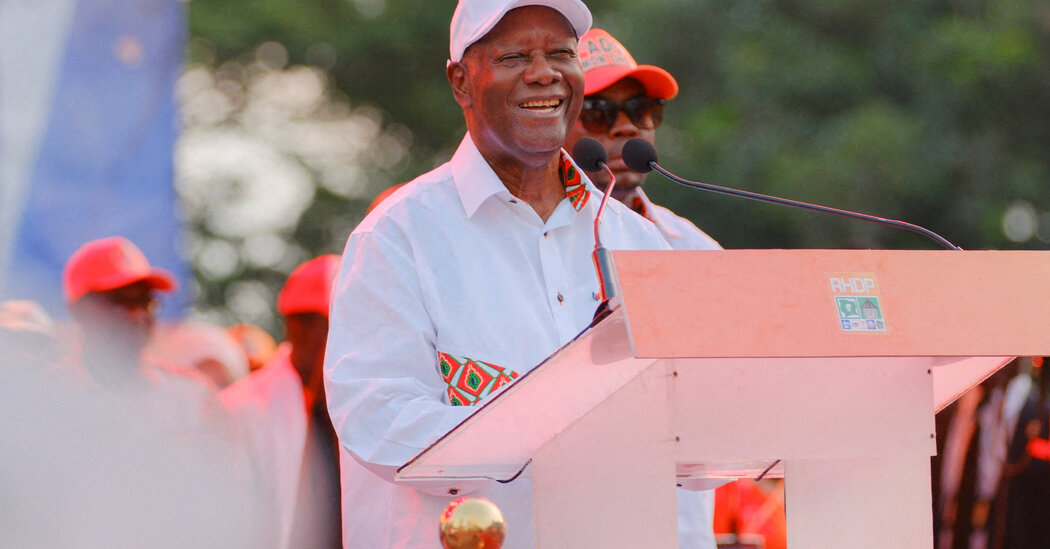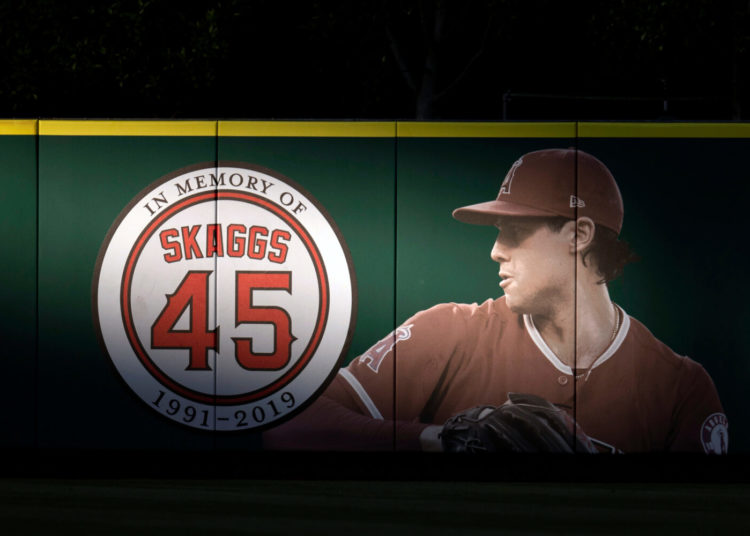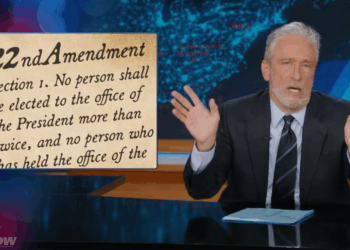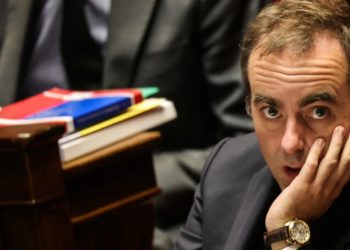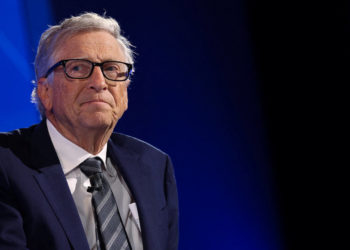The longtime president of Ivory Coast, Alassane Ouattara, easily won re-election in a vote that critics called flawed after two of his main opponents were barred from running against him.
Mr. Ouattara secured nearly 90 percent of the votes cast in the elections held on Saturday, the country’s election body announced on Monday.
The results mean that Mr. Ouattara, 83, first elected in 2010, will serve a fourth, five-year term as the leader of Ivory Coast, a West African nation of about 33 million people.
Mr. Ouattara won 89.77 percent of the vote, while the top two opposition candidates allowed to remain in the race received a combined total of just 6 percent.
“It is not a competitive election — it is just to tick the box,” said Beverly Ochieng, a senior associate at the Center for Strategic and International Studies and an expert on Francophone Africa.
Ivory Coast, the world’s largest producer of cocoa beans, has seen significant infrastructure development and an economic boom in the past 10 years. Much of that economic gain has been credited to Mr. Ouattara, who took power after a decade of civil war and a violent post-election uprising.
But Mr. Ouattara has also been accused of cracking down on dissent and manipulating election rules to keep rivals off the ballot.
In the 2020 presidential election, two main opponents boycotted the election, arguing that Mr. Ouattara was running illegally after he changed the country’s Constitution to enable him to run for a third term.
In this year’s vote, two of his top challengers, Tidjane Thiam, 63, and the former president Laurent Gbagbo, 80, who led the country from 2000 to 2011, were declared ineligible to run by an election body that many analysts say Mr. Ouattara controls.
Mr. Ouattara defeated Mr. Gbagbo in 2010, but the incumbent refused to concede, despite international pressure, setting off a bloody conflict that killed about 3,000 people. Mr. Gbagbo was arrested in 2011 and extradited to The Hague, where he faced charges at the International Criminal Court tied to his role in the post-election violence. He was ultimately acquitted.
The announcement of Mr. Ouattara’s landslide victory came the same day that the world’s oldest president, Paul Biya, 92, was declared the winner of presidential elections in Cameroon. Both outcomes show that the grip on power by leaders of advanced age in the continent with the world’s youngest population is not waning.
Ivory Coast has so far been spared the Gen Z protest movements increasingly spreading across Africa, including in Cameroon, where deadly protests have erupted amid claims that the election there was rigged.
But analysts said that despite improvements in living conditions in Ivory Coast during Mr. Ouattara’s tenure, the leader could soon face serious questions about his prolonged time in office amid the absence of a clear, viable successor.
“A lot more younger people have higher expectations, and if those are not met in 12 months, they would be protesting in the streets,” said Ms. Ochieng. “That includes a succession that represents them, and better jobs because there’s a general understanding that Ivory Coast is doing well economically, but in reality, there’s economic inequality, and youth unemployment remains widespread.”
Abou Bamba, an adviser to Mr. Ouattara, dismissed any claims that people in Ivory Coast thought it was time for a new face.
“It is not fair to say Ouattara has overstayed — because he has been elected,” Mr. Bamba said.
When asked whether this would be Mr. Ouattara’s last term, Mr. Bamba responded, “He made it clear that he won’t run for another term.”
“But if he wants to run again,” he added, “I think he is within his rights to do so.”
Saikou Jammeh is a reporter and researcher for The Times based in Dakar, Senegal.
The post Ivory Coast President Secures 4th Term in Election Without Top Opponents appeared first on New York Times.
